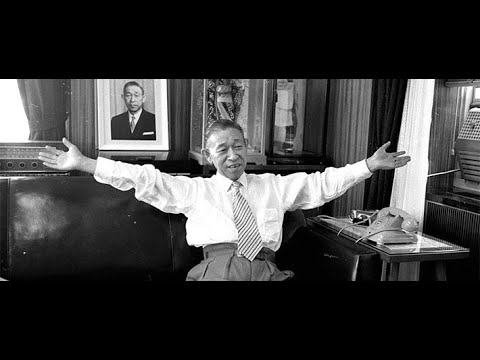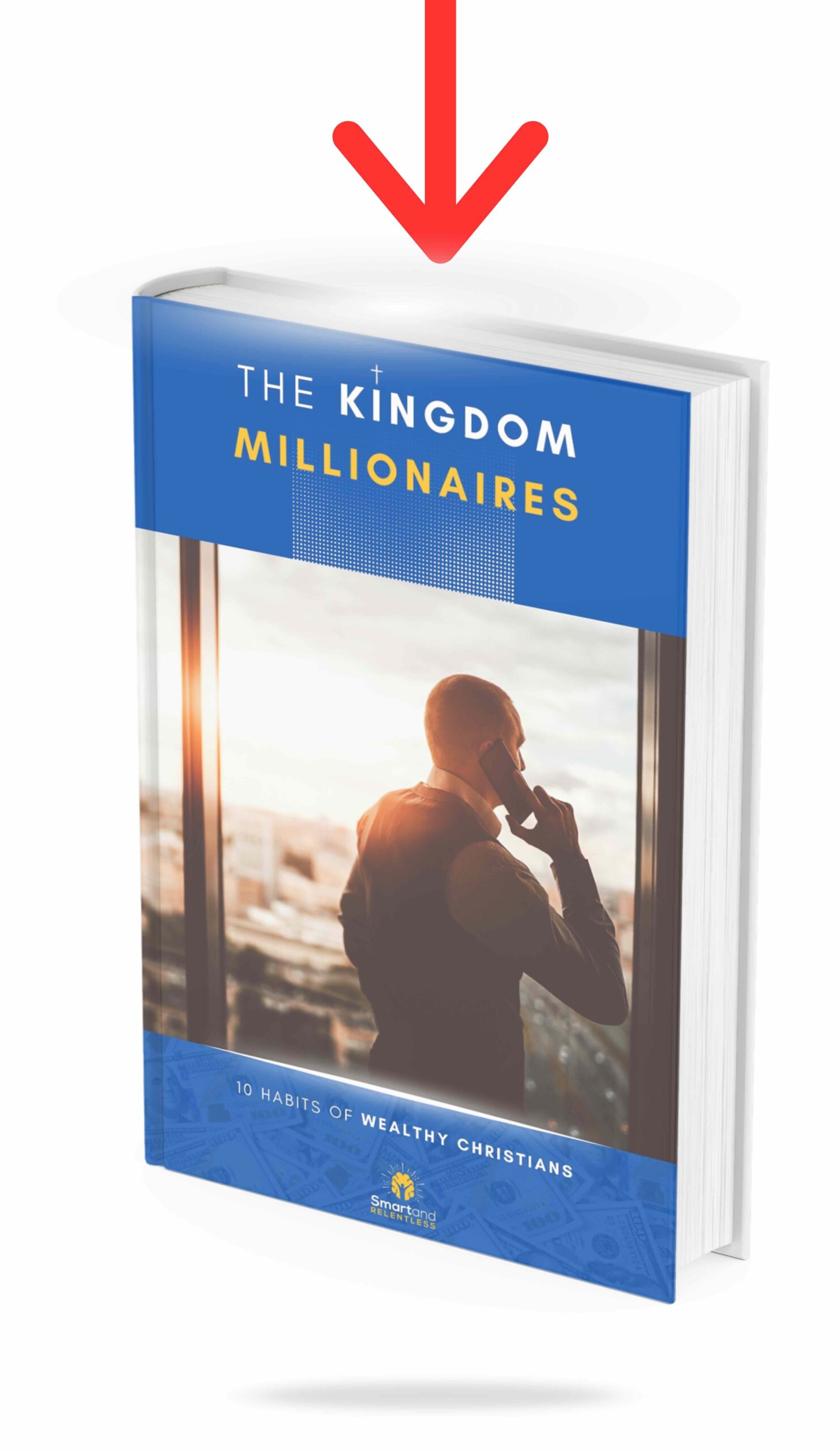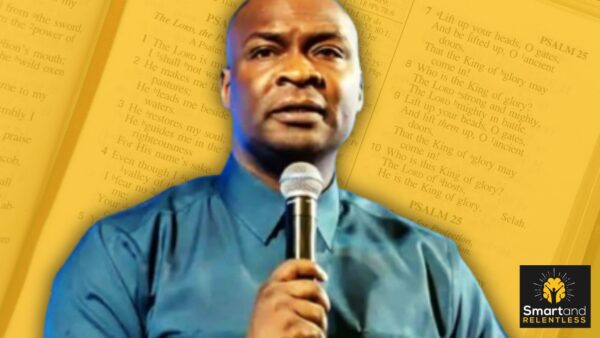
Be Smart and Relentless!
Subscribe to receive updates on the latest faith-based success tips, cutting-edge entrepreneurial concepts, and exciting opportunities.
10 inspirational people who created a financial fortune in the recession.
Video transcript below:
When the economy’s in a slump, it’s easy to lose hope. As people around you lose jobs, companies, and businesses close their doors and budgets get tight, you may think there’s simply no way to succeed. However, even in economic downturns, there’s often room for growth and new opportunities.
In this video, we’ve compiled a list of 10 inspirational individuals who transformed their financial status in the recession and great depression – going from broke to rich.
This video is to remind you that no matter how difficult your circumstances is with creativity and faith you can succeed in all aspect of life especially financially.
Charles Darrow
A victim of the Great Depression himself, Charles Darrow lost his job in 1929. It was in this time when he finally decided to work on his business idea which he had been procrastinating for a year’s previous. The idea was Monopoly which made Charles Darrow become the world’s first millionaire game designer.
Sam Walton
Everyone knows Sam Walton, the founder of Wal-Mart. A survivor of the Great Depression and World War II veteran, Walton started his variety store in 1944 at age 26 and did so well that he soon opened a second. After three years of work, he was selling around $225,00, and then later opened the first Wal-Mart. With store after store opening around the world, Walton died in 1992 with annual sales of $50 billion, almost 400,000 employees and almost 2,000 stores.
Konosuke Matsushita – Born in 1894
With no formal education of any kind, things did not look bright for Konosuke Matsushita. Rising from a poor family, he started at the bottom at Osaka Electric Light Company but quickly took a liking to the field, where he built a new kind of light socket off the job. When his superiors didn’t love his new invention as much as he did, he took to the road, creating his own company. While it was slow starting, that company eventually became Panasonic which he founded in 1918.
Jamie Dimon
The credit crisis was Jamie Dimon’s friend when he used the economic downturn to make JP Morgan tons of funds. During the economic downturn, he managed to purchase Bear Stearns and Washington Mutual for a tiny fraction of their original worth, after they were brought low by the collapse of the housing market. Doing so ended up with JP Morgan almost tripling in worth, making its shareholders and high-level executives extremely happy, all thanks to Dimon.
Sir John Templeton
Born in an impoverished Tennessean family, John Templeton didn’t allow his upbringing to determine his future. Despite his hardly advantageous upbringing, he managed to attend Yale University on a scholarship and then graduated at the top of his class, then went on to Oxford as a Rhodes Scholar, where he earned a master’s degree. He then headed to the States to work for a firm that would later help form what is now known as Merrill Lynch.
During the Great Depression, Templeton formed Templeton, Dobbrow & Vance, which quickly grew to a worth of more than $300 million. The organization eventually became Templeton Damroth and Sir Templeton sold his shares and left the business a wealthy man in 1962.
Sheldon Adelson
An immigrant’s son, Sheldon Adelson grew up in Boston as a poor Ukrainian. He started out selling toiletry kits to motels, then dropped out of New York’s City College, where he was studying corporate finance and real estate. He then joined the army, then later became a financial consultant. It was there that he made it big, as he learned to mentor companies in the selling of Wall Street ownership. There he became a millionaire and amassed a personal wealth of $24.9 billion.
Quote: “I look at every business and ask, How long can this last? How can I identify the status quo and change it?” –
Michael J. Cullen
Michael J. Cullen’s ingenuity and smarts play a role in most people’s lives nearly every day, or at least once a week. Cullen was an executive at Kroger Grocery & Bakery Co. but then quit his job in 1930, right when the country’s economic stability was the shakiest it’d ever been. However, Cullen had the right idea. He wanted to create the grocery store of the future, one that would coincide with the newest technological advancements, such as family automobiles and refrigerators. As he created these new supermarkets designed for the suburban housewife, able to accommodate parked cars and serve shoppers who had their refrigerators at home, Cullen discovered he had struck pure gold. Within two years, his new stores were making more than $6 million, or about $75 million in today’s dollars.
Paul Getty
While it may have seemed massive then (and now, as well), when J. Paul Getty received his inheritance of $500,000 in 1930, it still wasn’t an incredibly wealthy amount of money. That is, it wasn’t until Getty got his hands on it. After receiving his inheritance, he bought out all the oil stocks he could get his hands on when they were at their lowest during the Depression. When they went up again, he was suddenly a billionaire and the founder of a massive oil conglomerate.
Paul Getty in his own words, “I buy when other people are selling.”
John Paulson
Unlike most on this list, John Paulson didn’t combat the Great Depression, but rather the more modern economic downturns. Born in 1955 and founder of Paulson & Co. in 1994, he’s known to have made what is called one of the biggest fortunes in Wall Street history. While he worked almost unknown in finance until 2007, he then used some credit default swaps to bet against the U.S. subprime mortgage lending market, a scheme which made him big bucks. His net worth is now estimated at around $11.4 billion.
John Paulson in his own words, “Fear-driven periods in the past have been used as buying opportunities for savvy investors.”
Warren Buffet
Is known as one of America’s and the world’s greatest investor, Warren Buffet is considered by some to be a financial genius. He owns large pieces of Goldman Sachs, Swiss Re, and Dow Chemical and is a master of buying and selling. Much of his stock prowess comes from a motto he refers to as the acting of being fearful when others are greedy and being greedy when others are fearful. According to Market Watch, Warren Buffett started his investment business career with
$6,000 and grew it into 73 billion.
Hopefully, these success stores will encourage you to use your God-given gifts to create wealth and most importantly use it as a tool to the less fortune.
Author

Recent Posts
Related Articles
Meet the 8 inspirational Christian women billionaires: How faith and diligence built their empires
In today’s business world, where success is often pursued without a clear...
ByAdminSeptember 14, 2024T.D. Jakes Teams with top bank to build real estate empire
In a groundbreaking initiative that merges faith with financial empowerment, Bishop T.D....
ByAdminSeptember 11, 2024God owns my business – The Stanley Tam story (Documentary)
The story of Stanley Tam is more than just a biography...
ByAdminSeptember 8, 2024Christian business legend – The R. G. LeTourneau story
Robert Gilmore R.G LeTourneau, an extraordinary Christian inventor, businessman, and entrepreneur, left...
ByAdminMarch 2, 2024











